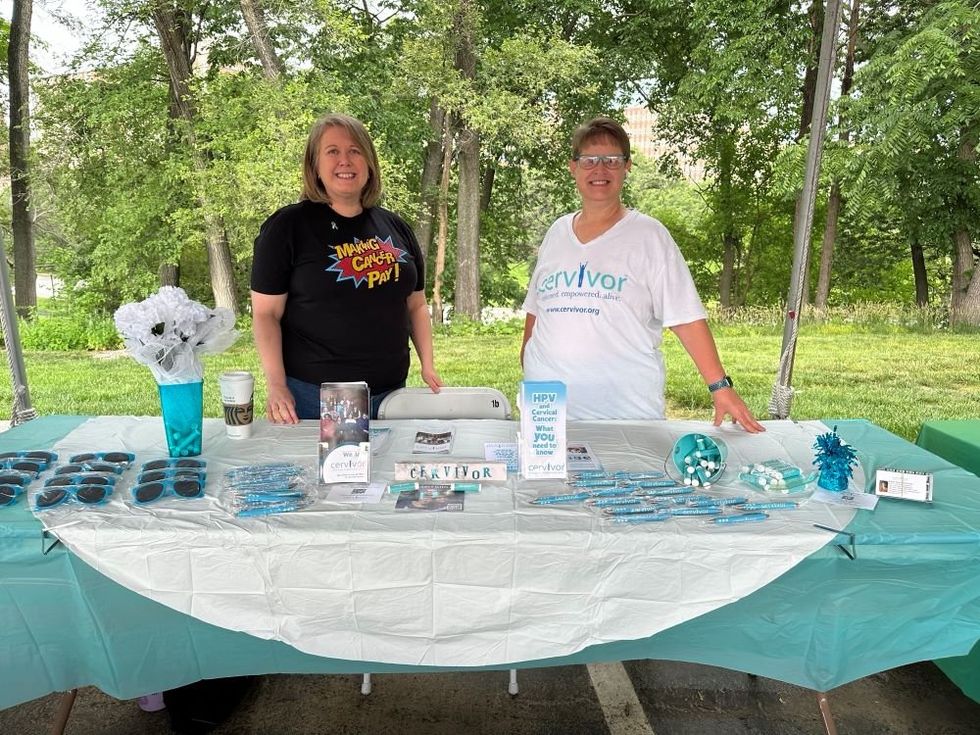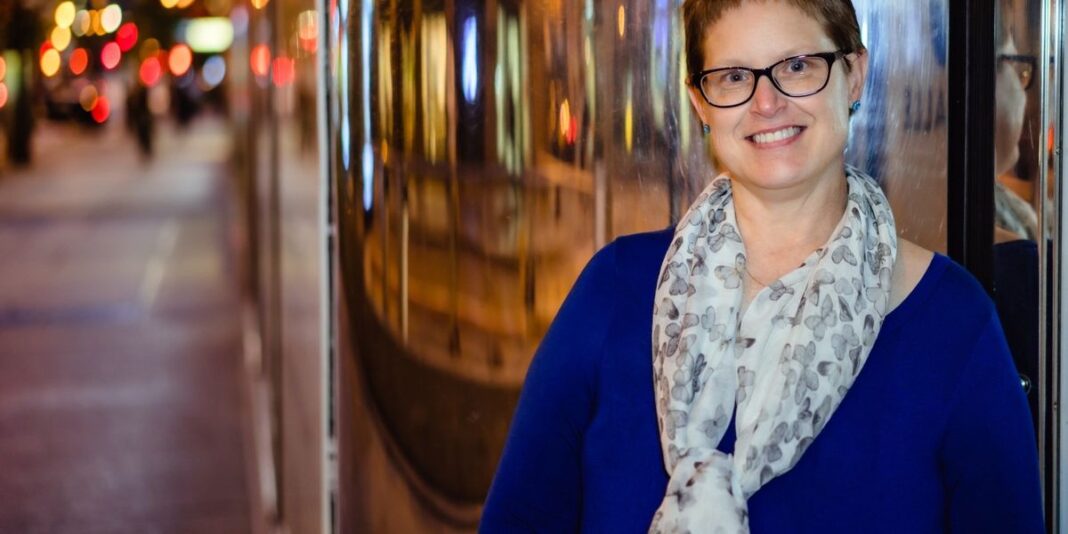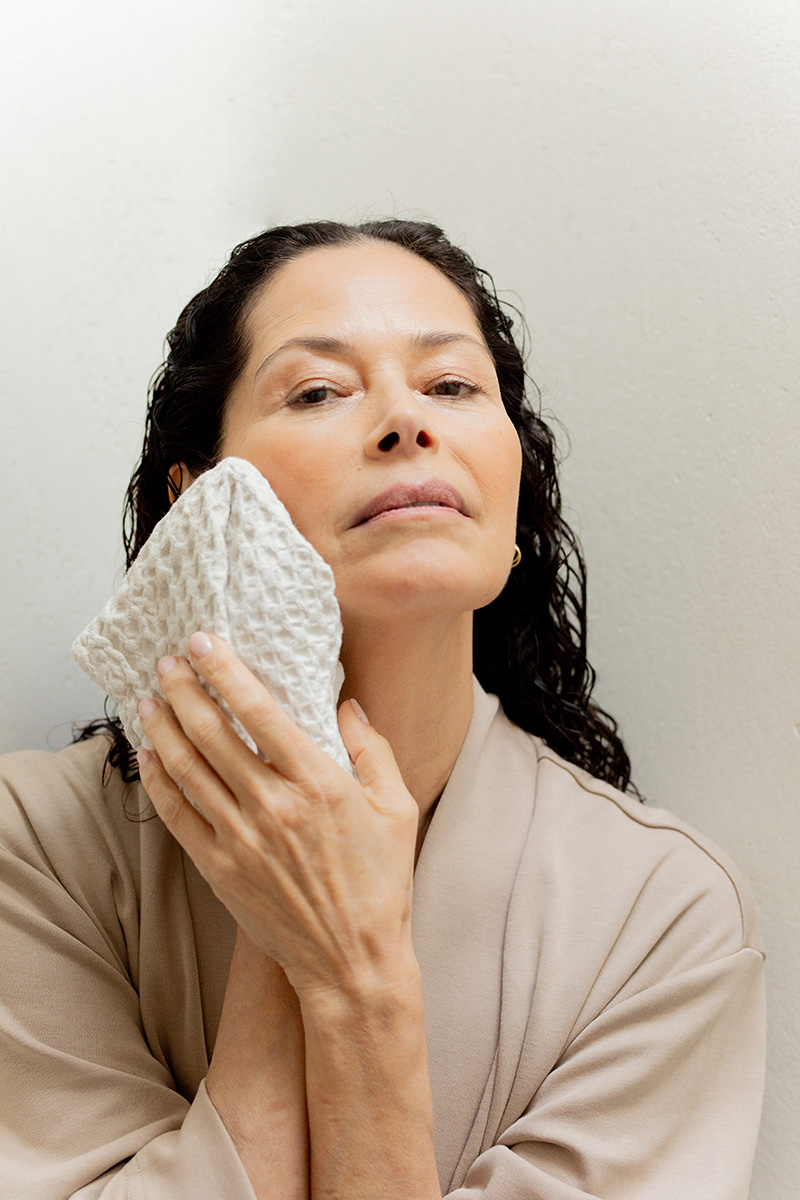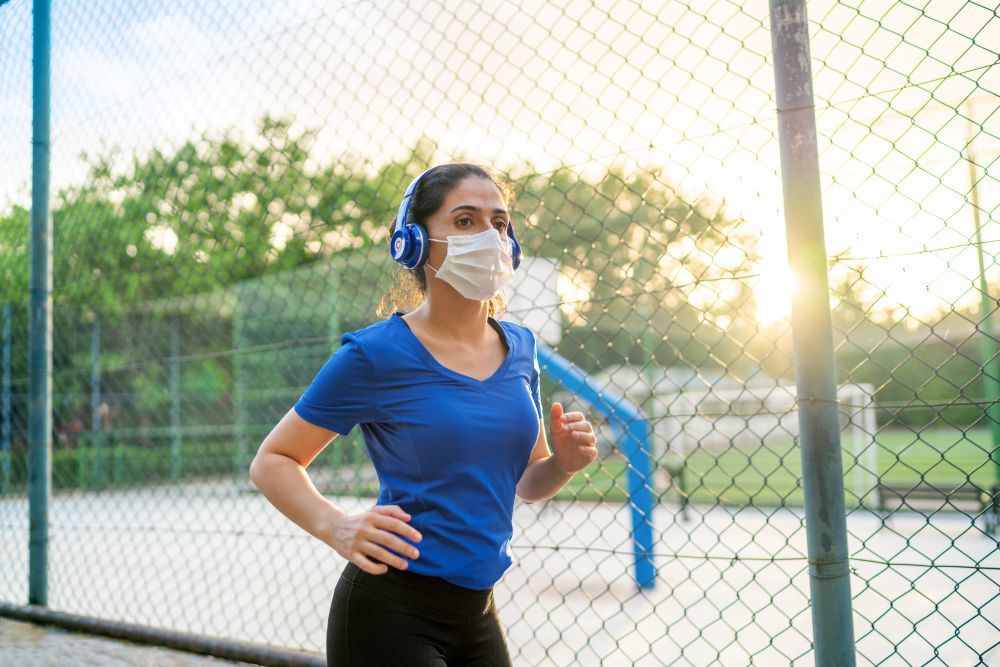As told to Jacquelyne Froeber
January is Cervical Cancer Awareness Month.
I was standing in the checkout line at Walmart when my phone rang. It was my gynecologist.
“Karen, your Pap test came back abnormal — you need to come in for a biopsy,” she said.
I sighed. Here we go again.
Eighteen months earlier, I’d been diagnosed with breast cancer. Thankfully, we caught it early, but it was still cancer. I was 46 at the time and didn’t see the need to keep my breasts if they were trying to kill me, so I had a double mastectomy.
I’d hoped that my decision to have the surgery would help keep cancer at bay, but I’m a nurse so I knew the abnormal test results didn’t sound good.
And I was right — I had cancerous cells all the way around my cervix. The surgeon removed the tissue during a cone biopsy, but I had to wait three months to heal before I could have a scan to see if any new cancerous cells were growing.
The next step was to see a gynecologic oncologist to talk about my options going forward. My partner Karen and I — yes, we’re both named Karen — met with the doctor and went over the test results. Afterward, I changed into one of those lovely paper gowns for the exam. When the doctor returned to the room and said “Karen,” we weren’t sure who he was talking to.
“I’m going to call you Karen dressed,” he said pointing to my partner. “And you Karen undressed,” he said to me for obvious reasons.
Karen and I burst out laughing. It was the perfect comment at the perfect time.
I was thankful for all of the support and love I received from my care team and family and friends, but the next three months were really hard for me. My nurse brain was racked with obsessive anxiety 24/7. Like a morbid game of frogger, I’d leap from diagnosis to diagnosis. It was torture to think there might be cancer growing in my body and I’m just what … watching reruns of “Friends?” I felt helpless because there was nothing I could do about it.
I’d recently started a new healthcare job that helped keep my mind occupied. When the three months were up and I finally had the follow-up tests, my fears were confirmed: cancerous cells were growing and I was scheduled to have a radical hysterectomy.
The day of the surgery, my doctor said there was one catch: If the contrast dye they administered before the surgery showed that cancer had moved to my lymph nodes, they wouldn’t do the hysterectomy and I’d need to start chemotherapy and radiation right away.
As they wheeled me into the operating room, I made a note of the time and hoped I’d wake up hours later cancer-free.
When I came to, I looked at the clock and saw that not much time had passed. Still, I smashed around my gut and pelvic area — no incisions. I sank back into the bed and listened to the short beep of the monitor next to me. And then I screamed into my pillow as loud as I could.
I was devastated. And the thought of having to tell my son and Karen and everyone I knew that I had cancer — again — was almost too much to wrap my brain around. But as a nurse, I was used to putting on a good face even when things were falling apart. So that’s what I did.
My treatment plan was aggressive: six chemotherapy sessions and 25 rounds of radiation.
At first, I was excited to learn that the chemotherapy wasn’t the kind that would make my hair fall out, but I would’ve shaved my head myself if that meant I didn’t have to deal with the debilitating nausea and diarrhea I called “liquid death.”
One morning, about midway through treatment, my stomach started cramping so bad I couldn’t stand up all the way. My fingers were bent and curled inward and Karen had to drive me to the emergency room.
My blood work showed I had extremely low levels of magnesium and potassium. That doesn’t sound too serious, but I asked to be admitted — that’s how bad I felt. The only good thing that came out of the scare was that I started new medications to help with the extreme side effects from the chemo and radiation. And I did feel better — or as good as you can when you’re going through treatment.
After the chemo and radiation were over, I went back to work and tried to be business as usual. But I was physically and mentally exhausted. I was slow to finish my nursing duties every day and, one afternoon, my son had to pick me up because I had a panic attack. I eventually lost my job, which seemed like the end of the world at the time, but it turned out to be the best thing for me.
I’d been putting on my “fake face” and trying to be strong for so long I didn’t know how to be vulnerable. Thankfully, Karen called me out on my fakery and that’s when I started being honest and going to counseling. I also joined a cervical cancer survivor group on Facebook and met up with a member one day for coffee.
 Karen at a Cervivor event, 2022
Karen at a Cervivor event, 2022
As we talked about our experiences, a light bulb went off in my head. I’d been feeling so alone — like I was the only person on the planet going through cervical cancer. But I wasn’t alone. It was like finding the last piece to the puzzle, and everything clicked. I realized that I was still a nurse and I could still help people, just in a different way.
Today, I’m an ambassador for the patient advocacy group Cervivor. I also lead Cervivor PRIDE for sexual and gender minority (LGBTQIA+) survivors. My goal is to offer support and guidance to anyone who has/had cervical cancer because I’m an open book and I would’ve done a lot of things differently during treatment (hello, therapy and a better diet).
It’s been eight years since my diagnosis and I’m happy to say I’m NED — no evidence of disease. But I’m careful to keep up with my yearly appointments. Cervical cancer is sneaky, and I know it could come back any time. And while I think “Karen Undressed” is absolutely hilarious, I’ll take “Karen No Evidence of Disease” every day.
Have your own Real Women, Real Stories you want to share? Let us know.
Our Real Women, Real Stories are the authentic experiences of real-life women. The views, opinions and experiences shared in these stories are not endorsed by HealthyWomen and do not necessarily reflect the official policy or position of HealthyWomen.
From Your Site Articles
Related Articles Around the Web


